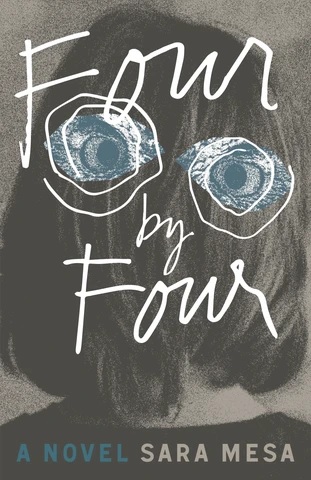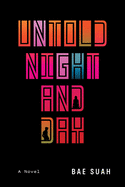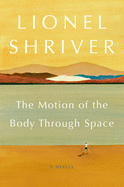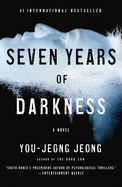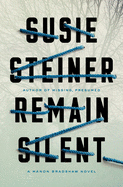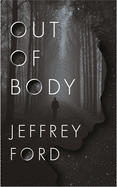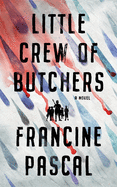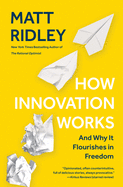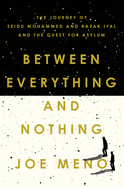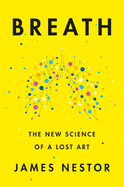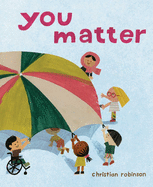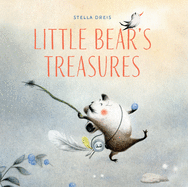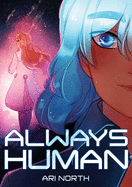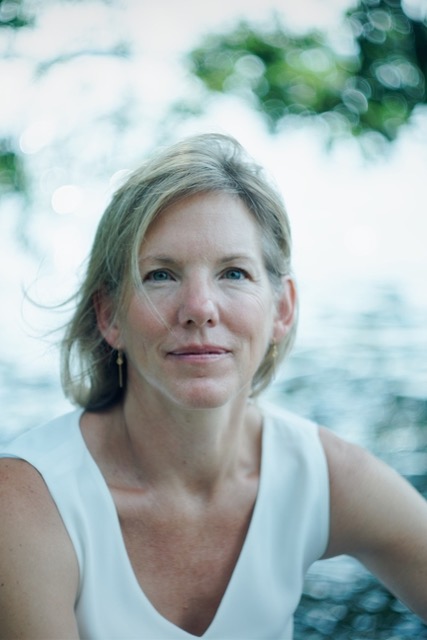 |
| (photo: James Bartelt) |
Christina Clancy spent many childhood summers on Cape Cod. She holds a Ph.D. in creative writing from the University of Wisconsin-Milwaukee and has taught creative writing at Beloit College. Clancy lives in Madison, Wis., with her husband. The Second Home is her debut novel.
What was the inspiration for The Second Home?
The story started with Poppy, the youngest Gordon sibling. She's a surfer and has been traveling all over the world. She was inspired by a bartender I met in Panama who was traveling and working all over the world. I'm such a Midwesterner--I have this idea of bringing people home. And I wondered: How would I get Poppy home and have her reconnect with home?
I knew "home" was going to be Milwaukee, because I'm from Milwaukee. But my grandparents lived on Cape Cod and I spent so much time there. In my family, there was a lot of trauma when my grandparents passed away and we tried to figure out what to do with their house. I interviewed some female surfers, and one of them very pointedly said to me, "Whatever you do, you can't have Poppy get married and settle down at the end of the story." I ended up having something between that ending and having Poppy continue with the life she'd previously had.
The book really explores the idea of home, and multiple homes.
Yes. Home can be a complicated idea, especially when there's a second home in the mix. In some ways, second homes can feel even more like "home" than the places we live with our families. I don't think home is ever an obvious thing for us. Whether we're trying to recapture feelings we felt as children, or create a home for the first time as adults--some people never feel like they have a home. I have a friend who is from Spain and has moved to the U.S., and he said he only ever felt at home in an airplane. You can definitely have that feeling of home in an "elsewhere." I used to teach English at Beloit College and I taught a course on "Elsewhere," so clearly that's a big idea for me.
Is the Gordons' house on Cape Cod inspired by your family's house?
Yes, partly, but it's really inspired by the house next door to where my family lived. My grandparents' house is right on the cove, and our neighbors' house is closer to Route 6, although it's also near the cove. It feels very private, especially once you drive up that long driveway. The view is really beautiful.
My grandfather taught at Harvard and then was the headmaster of boys' schools. He was around kids all the time. When we were kids and would go visit, it was my mother's vacation. She was a single mom and she just wanted to be able to relax. An older lady, Mrs. Andl, lived next door and she was a complete foil to my grandparents. She had this soft voice and curly hair, and she always wanted us to come over and play games. She wore these flowered maxi dresses and she was so warm. We'd play Tiddlywinks or Parcheesi or Uno. That's why the game cabinet was so important in the novel; I wanted to bring those characters back to a time when nobody was on a phone. I think houses imprint themselves on us, and that one definitely did on me.
Mrs. Andl loved telling stories about her house. The previous owner, Clarence Hicks, was kind of crazy. He made a bunch of money during Prohibition from running rum. My grandmother would stand on Route 6 with a lantern and guide all the men who were smuggling rum up the coast. Hicks is kind of a legendary figure in the area--there are holes all over that house where it was rumored he'd hidden money.
The Gordons adopt a teenage boy, Michael, who is recently orphaned. How did you decide to include him in the book?
I used to volunteer at a school in the central city of Milwaukee and there was a little boy named Michael who stole my heart. He had a lot of ADD issues and a lot of family life problems. We just clicked, and we'd always read together. One day I went in to work with him, and he was gone. He never came back to school again. It troubled me. There was a part of me that wanted to save this kid and help him. I couldn't, of course. Sometimes we think we can do more for people than we really can. I wanted to imagine Michael finding a home, but I knew that it would never be easy for him.
How does the idea of class come through in the novel?
A lot of people, when they hear about this book, think it's going to be about a wealthy family on Cape Cod with a second home. But the Gordon family is very blue-collar: Ed, the dad, is a teacher. People in the Midwest know that, on either coast, there are lots of people who don't even know about Wisconsin. The class divide is also really stark in Milwaukee. Ann is very aware of these things, and she's extra conscious of class on Cape Cod.
I'm always very interested in class. That summer when she's a teenager, Ann is also figuring out what men are like, and how she thinks they should be, how they should treat women, and what kind of life she wants for herself.
The book is about the whole family, but in some ways it's really the story of Poppy and Ann, the two sisters.
I think each of the characters represents a different personality type, and the shared history of the house also brings them back together. A lot of people identify with Poppy because they share her wanderlust. But many people are frustrated with Poppy and identify deeply with Ann. I admire Ann because she gets dealt a tough hand in life--she's "Ann with a Plan," as her dad says, and then that plan gets thwarted. But she figures it out. She has this confidence that can be her downfall, but it's also her strength. --Katie Noah Gibson
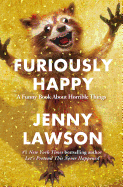 I did receive a message from the doctor; she said it was important to be kind and tell jokes. And that made me think of Jenny Lawson, author of Let's Pretend This Never Happened (Berkley, $16) and Furiously Happy (Flatiron, $17.99). Lawson has the ability to convey the surprisingly absurd situations of daily life with a wry tone as she makes her way through chronic pain and mental illness. She shocked me into laughing out loud more than once, and I thought, "Wow, did she really do that? Did she really say that?"
I did receive a message from the doctor; she said it was important to be kind and tell jokes. And that made me think of Jenny Lawson, author of Let's Pretend This Never Happened (Berkley, $16) and Furiously Happy (Flatiron, $17.99). Lawson has the ability to convey the surprisingly absurd situations of daily life with a wry tone as she makes her way through chronic pain and mental illness. She shocked me into laughing out loud more than once, and I thought, "Wow, did she really do that? Did she really say that?"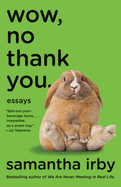 And that made me think of Wow, No Thank You (Vintage, $15.95), Samantha Irby's third book of essays. Irby pretty much vomits her negative thoughts, observations and judgments onto the page in an acerbic, matter-of-fact tone using language straight from what my elders would call "the gutter." As someone who pretty much funds the swear jar at work, I laughed through page after page until tears ran down my face. Irby's truth-telling about chronic pain, compulsive eating, relationships and bowel issues actually gave me an asthma attack. She is that good.
And that made me think of Wow, No Thank You (Vintage, $15.95), Samantha Irby's third book of essays. Irby pretty much vomits her negative thoughts, observations and judgments onto the page in an acerbic, matter-of-fact tone using language straight from what my elders would call "the gutter." As someone who pretty much funds the swear jar at work, I laughed through page after page until tears ran down my face. Irby's truth-telling about chronic pain, compulsive eating, relationships and bowel issues actually gave me an asthma attack. She is that good. 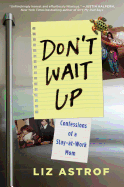 Right up the alley of anyone who has read the other two titles is Liz Astrof's Don't Wait Up: Notes from a Stay-at-Work Mom (Gallery, $27). Astrof is heart-wrenchingly funny about a dysfunctional childhood. She is also horrifically honest about raising children despite having no discernable parenting skills. I laughed, I cried, and can't believe these writers had the guts to put their true thoughts and feelings on the page. This is just what I need right now. --Lisa Von Drasek, curator, University of Minnesota Libraries
Right up the alley of anyone who has read the other two titles is Liz Astrof's Don't Wait Up: Notes from a Stay-at-Work Mom (Gallery, $27). Astrof is heart-wrenchingly funny about a dysfunctional childhood. She is also horrifically honest about raising children despite having no discernable parenting skills. I laughed, I cried, and can't believe these writers had the guts to put their true thoughts and feelings on the page. This is just what I need right now. --Lisa Von Drasek, curator, University of Minnesota Libraries





